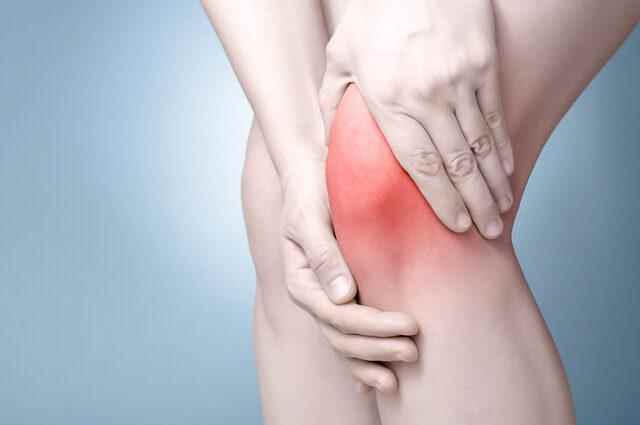When rheumatoid arthritis, which is a chronic disease, is not treated, loss of shape and function in the joints can develop. Patients who are left without treatment for a long time may have to cope with serious problems such as severe pain and limitation of movement, which can prevent them from even doing their daily work due to permanent damage to the joints. Therefore, early diagnosis and appropriate treatment are extremely important in rheumatoid arthritis.
12 WRONG FACTS ABOUT rheumatoid arthritis
Contrary to the common belief in the society, thanks to the medical developments experienced today, very successful results are obtained when early diagnosis and treatment are applied and the disease can be controlled.
However, there are some erroneous information about rheumatoid arthritis in the society that can prevent effective results from treatment. Acıbadem University Atakent Hospital Rheumatology Specialist Dr. Esra Dilşat Bayrak talked about ‘false’ information about rheumatoid arthritis that was thought to be ‘correct’; made important suggestions and warnings.
Rheumatoid arthritis occurs only in advanced age. FALSE!
ACTUALLY: Contrary to popular belief, rheumatoid arthritis is not only seen in advanced age. Although it most commonly develops in the 30-50 age range, it can affect any age group, including childhood.

Deformity develops in the joints. FALSE!
ACTUALLY: Rheumatologist Dr. Esra Dilşat Bayrak states that if the treatment is started early and the patient receives the treatment regularly, there is no loss of shape and function in the joints in rheumatoid arthritis, “However, permanent loss of shape and function may occur, especially in patients whose treatment is delayed.”
Rheumatoid arthritis is inherited. FALSE!
ACTUALLY: Some genetic changes in rheumatoid arthritis predispose to the disease. However, although the incidence of the disease in the family increases, rheumatoid arthritis does not pass directly from the patient to the child.

It improves with special diets and supplements. FALSE!
ACTUALLY: Rheumatoid arthritis is not just a disease that can improve with some special diets. However, in addition to the treatments, some dietary adjustments and supplements, taking into account the clinical condition and additional diseases of the patients, are beneficial in alleviating the symptoms.
It is enough just to use medicine. FALSE!
ACTUALLY: “Medical treatment should be started as soon as the diagnosis of rheumatoid arthritis is made,” Dr. Esra Dilşat Bayrak said, “In addition to drug treatment, attention should also be paid to factors that will trigger the disease and negatively affect the treatment. Smoking must be stopped, appropriate diet and exercise must be started.” says.

Covid vaccine worsens rheumatoid arthritis. FALSE!
ACTUALLY: In the studies carried out; It has been shown that covid vaccines do not worsen rheumatic diseases. Moreover, since they are in the risky patient group, it is very important for the patients to have their vaccinations done regularly. They should definitely talk to their doctor about the use of rheumatism drugs during vaccination.

Spa treatment is good for rheumatoid arthritis. FALSE!
ACTUALLY: Contrary to popular belief, spa and hot applications are not recommended for inflammatory joint diseases such as rheumatoid arthritis. The reason for this is that hot applications increase edema and inflammation in the joint, causing the disease to flare up. Patients with osteoarthritis, that is, osteoarthritis, can benefit from these treatments.
Rheumatoid arthritis only affects the joints. FALSE!
ACTUALLY: Although rheumatoid arthritis most commonly begins with pain and swelling in the joints of the hands and feet, these problems include eye (especially dry eye), lung (fluid accumulation in the lung membrane, deterioration in lung structure), cardiovascular diseases, blood count disorders, skin rash and kidney involvement. Many systemic findings can also be seen.
Exercising affects the disease badly. FALSE!
ACTUALLY: In rheumatoid arthritis, especially aerobic and resistance exercises reduce pain and are beneficial in maintaining joint function. Rheumatologist Dr. Esra Dilşat Bayrak, pointing out that regular sports also prevent joint limitations that may develop in the long term, says, “For this reason, patients should exercise as recommended by their doctors, taking into account the joint involvement areas and additional diseases.”

There is no cure for rheumatoid arthritis. FALSE!
ACTUALLY: In the treatment of rheumatoid arthritis, drugs that stop the disease have been used for many years and very successful results are obtained. Emphasizing that in cases where there is no adequate response to the first-line treatment, they are switched to biological treatments with newer technology. Esra Dilşat Bayrak draws attention to the fact that today there are a wide variety of treatment options for both mild and severe disease groups.
The side effects of drugs used in treatment are many and risky. FALSE!
ACTUALLY: Rheumatologist Dr. Esra Dilşat Bayrak says, “All the drugs used in the treatment of rheumatoid arthritis are drugs that we have experienced for years, and safety studies have been done,” and continues, “However, as with any drug, side effects need to be monitored. After starting the drugs, the patients are checked first in the 1st month and then every 3 months with blood checks and examination. These periods are further extended in patients who have been using drugs for a long time and have no side effects.

If you feel well, you can stop the medication. FALSE!
ACTUALLY: Since rheumatoid arthritis is a chronic disease, it is not possible to fully recover. Complaints improve after a while after starting the medication, but this is only possible thanks to medication. In patients who discontinue the drug, symptoms return severely after a short time. If the disease progresses well in the continuation of the treatment, the dose and number of drugs can be reduced, but in many cases, completely discontinuing the drug is not recommended.
